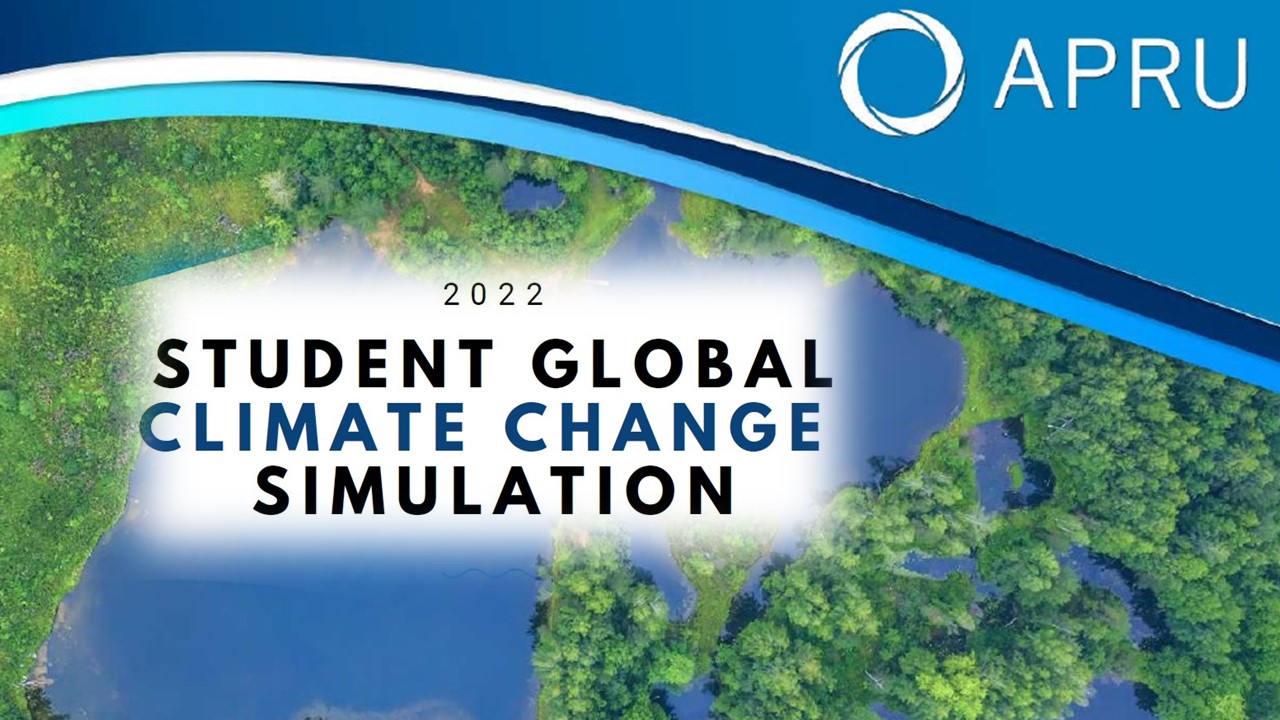APRU recently completed its second APRU Climate Change Simulation and is now preparing for next year’s simulation, with a new advisory group soon to be appointed. Co-organized by the APRU Global Health and the APRU Sustainable Cities and Landscapes Programs, the APRU Climate Change Simulation is a role-playing exercise in which students form multi-country, multi-disciplinary teams play the role of delegates to the UN Climate Change Negotiations.
The 2022 APRU Climate Change Simulation engaged nearly 170 students from 17 APRU Universities in addition to a student group from Fiji National University. Forty-five experts from APRU universities and external partner organizations supported the delivery of the simulations, which are tasked to show ways to limit global warming to well below 2℃ in line with The Paris Agreement.
A post-event survey showed that participating students highly appreciated the amount of diverse information on climate change, interaction with people from different parts of the world and the chance to take a very close look at the problems facing each country.
“This simulation exercise has brought me to look at climate change in various perspectives in terms of its causes and the possible mitigation actions that are scientifically proven,” said Pedros Marcol Tabulo, a student from Fiji National University.
“I will be so happy to share with my family and friends the importance of managing forests, which involves reducing deforestation and stepping up afforestation efforts,” he added.
Students have also been grateful for the input they get from the experts who contribute to the simulations. The 2022 APRU Climate Change Simulation saw Ebru Gencoglu, Head of Sustainable Sourcing of Adidas, sharing insights on Adida’s efforts to lower the carbon footprint with new design and production approaches. Bernhard Barth, Human Settlements Officer of UN-Habitat, described how the Covid-19 pandemic and ongoing conflicts both reveal and amplify the escalating impacts of climate change. Important expert contributions were provided by Dr. Rhys Jones (Ngāti Kahungunu), the Public Health Physician and Senior Lecturer at the University of Auckland, and Dr. Ralph Chami, the Assistant Director, and Chief of Financial Policies at the International Monetary Fund. Their key insights focused on indigenous perspectives and how to fund the climate crisis respectively.
On the facilitator side, the post-event survey showed that the participators of the 2022 APRU Climate Change Simulation were impressed by how close it got to actual negotiations. Facilitators also noted that the students were very motivated despite the event being held online.
“The value of this type of experience for students is magnificent, as it allows students to appreciate the values of a wide range of intellectual disciplines and a high degree of intercultural sensitivity, tolerance and a global perspective,” said Vivian Lee of the Chinese University of Hong Kong, who served as a facilitator.
The 2023 APRU Climate Change Simulation will tentatively run in April 2023. The advisory group will be made up of simulation founding members Mellissa Withers of the University of Southern California and Elly Vandegrift of the University of Oregon. They will be joined by facilitators Vivian Lee, Zhenyu Zhang of Peking University and Christina Schönleber and Tina Lin of the APRU Secretariat.
“We urge any interested APRU members who want to get their students engaged in this important activity to reach out to us,” Zhang said.
“It is an excellent opportunity for participants to improve their communication skills, which is important when negotiating, lobbying or influencing leaders to take the actions necessary to implement solutions to climate change,” he added.
More Information
- Find the webpage of the Student Global Climate Change Simulation 2022 here.
- View the program of the simulation 2022 here.
- Read the news in The Fiji Times about the simulation here.
- View a blog from UO’s student reporter here.
- To find out more about the APRU Climate Change Simulation 2023 and how your students can engage please contact [email protected].

